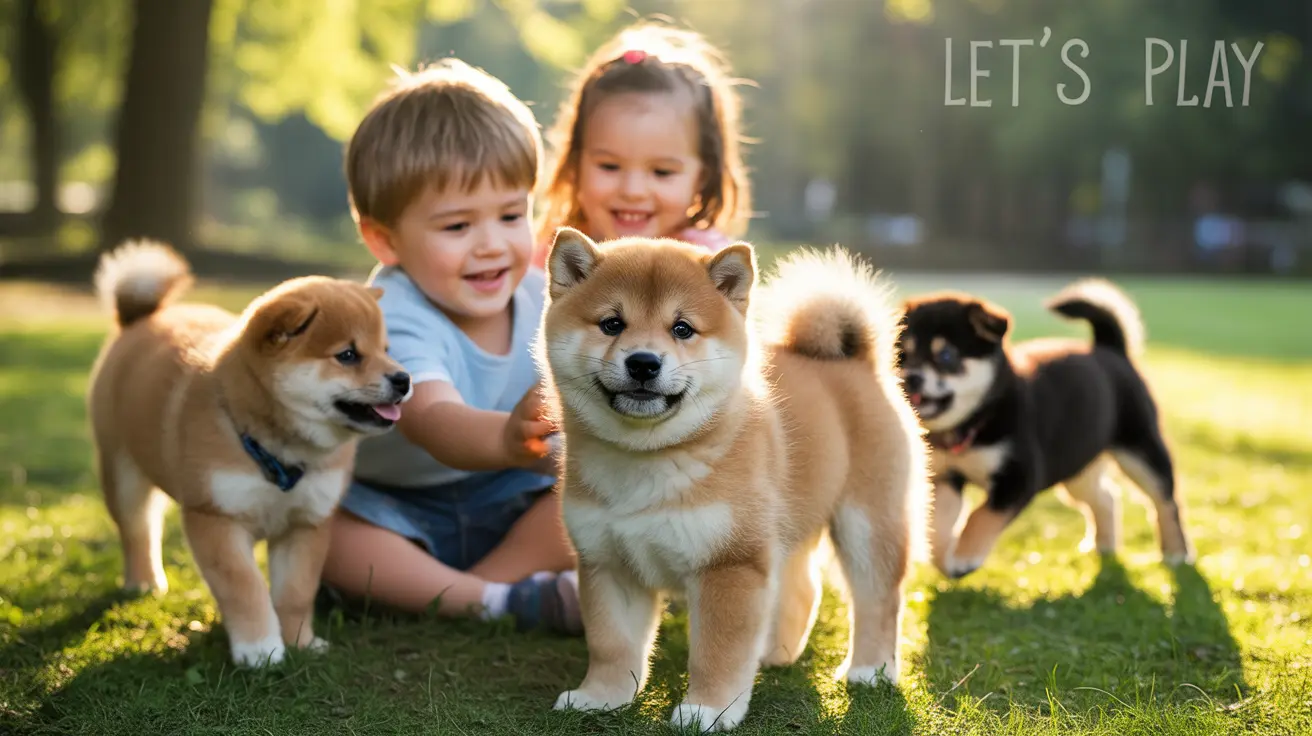Puppy socialization is a crucial developmental process that shapes your dog's future personality, behavior, and overall well-being. When done correctly during the critical early weeks of a puppy's life, proper socialization creates the foundation for a confident, well-adjusted adult dog that can handle various situations with ease.
In this comprehensive guide, we'll explore the vital aspects of puppy socialization, including timing, techniques, and best practices that will help your furry friend develop into a balanced, social companion.
Understanding the Critical Socialization Period
The most crucial window for puppy socialization occurs between 3 and 14 weeks of age. During this sensitive period, puppies are naturally receptive to new experiences and can form positive associations that will last a lifetime. This timeframe is particularly important because puppies are less fearful and more adaptable to new situations.
Research shows that experiences during this period significantly impact a dog's future behavior and emotional responses. Positive encounters during these formative weeks help prevent fear, anxiety, and aggression in adult dogs.
Essential Components of Proper Socialization
People and Handling
Expose your puppy to various people, including:
- Men, women, and children of different ages
- People wearing different clothing (hats, sunglasses, uniforms)
- People of different ethnicities and appearances
- People using mobility aids or carrying items
Environmental Exposure
Introduce your puppy to diverse environments such as:
- Different floor surfaces (carpet, tile, grass, concrete)
- Various weather conditions
- Different noise levels
- New locations (parks, streets, pet stores)
Other Animals
Carefully orchestrate positive interactions with:
- Other puppies in controlled settings
- Friendly adult dogs
- Different animal species (when safe)
- Various breeds and sizes of dogs
Safe Socialization Techniques
Always prioritize your puppy's safety and comfort during socialization. Start with calm, controlled environments and gradually increase exposure to more challenging situations. Watch for signs of stress or overwhelm, such as cowering, hiding, or excessive panting.
Use positive reinforcement through treats, praise, and play to create pleasant associations with new experiences. Never force your puppy into frightening situations, as this can create lasting negative associations.
The Role of Puppy Classes
Professional puppy socialization classes offer structured opportunities for social development under expert guidance. These classes provide:
- Supervised play with other puppies
- Professional behavior guidance
- Exposure to new environments
- Basic training foundations
- Owner education and support
Ongoing Socialization Through Development
While the critical period ends around 14 weeks, socialization should continue throughout your dog's life. Regular exposure to new experiences helps maintain social skills and prevents regression. Keep interactions positive and rewarding to reinforce good behavior.
Frequently Asked Questions
Why is socialization important for puppies, and what happens if they don't receive enough?
Socialization is crucial because it helps puppies develop into well-adjusted adult dogs. Without adequate socialization, puppies may develop fear, anxiety, or aggression toward unfamiliar people, animals, or situations. These behavioral issues can be challenging to correct later in life.
How do I socialize my puppy effectively during the critical period of 3 to 14 weeks?
Focus on providing positive, controlled exposures to various people, animals, environments, and situations. Use treats and praise to create positive associations, and avoid overwhelming your puppy. Start with calm situations and gradually increase complexity as your puppy gains confidence.
What are the key activities and environments I should introduce my puppy to during socialization?
Expose your puppy to different people, animals, surfaces, sounds, and environments. Include experiences like car rides, handling by strangers, grooming, and various weather conditions. Always ensure these exposures are positive and controlled.
How can I prevent my puppy from becoming fearful or aggressive during socialization?
Monitor your puppy's body language for signs of stress, and never force interactions. Keep experiences positive and brief, allowing your puppy to retreat if uncomfortable. Use high-value treats and praise to create positive associations with new experiences.
Can older puppies still benefit from socialization, and what are the best ways to continue their social development?
While the critical period ends around 14 weeks, puppies can still benefit from ongoing socialization. Focus on gentle, positive exposures, and work with a professional trainer if needed. Continue providing new experiences throughout your dog's life to maintain social skills.
Conclusion
Proper puppy socialization is an investment in your dog's future well-being. By following these guidelines and maintaining a consistent, positive approach to new experiences, you'll help your puppy develop into a confident, well-adjusted adult dog capable of handling life's various situations with ease.






